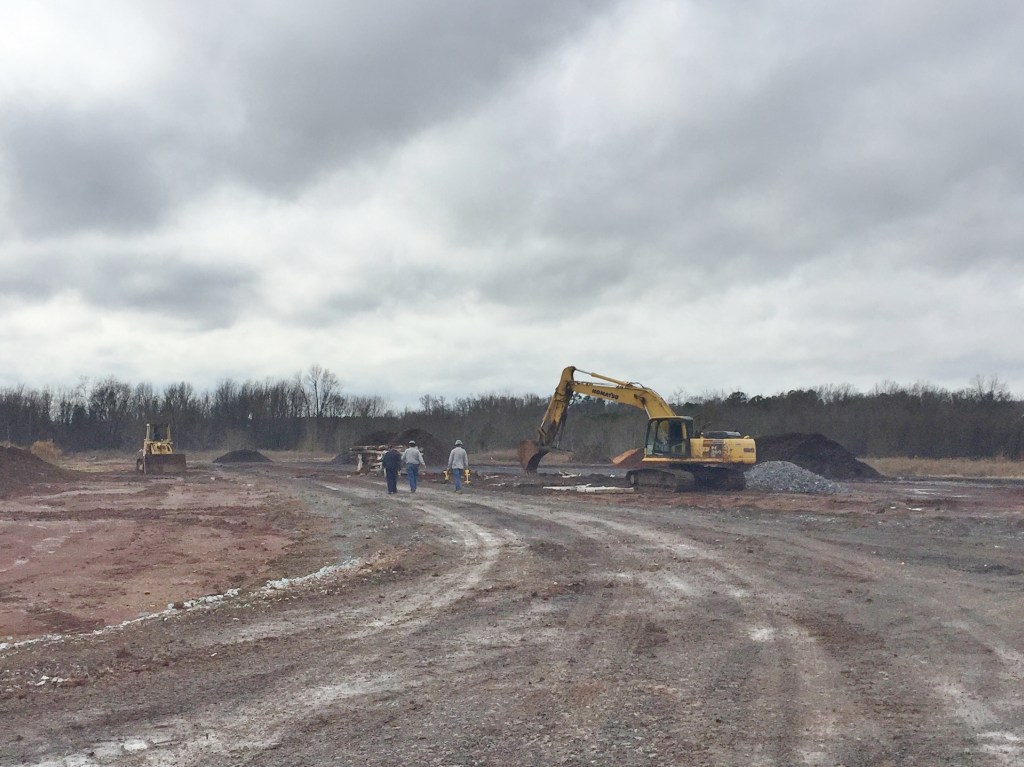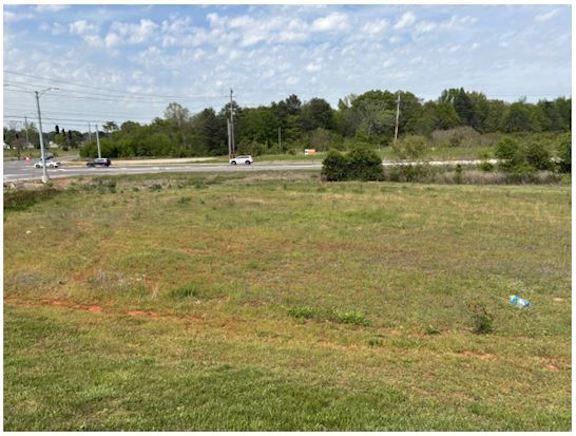Official: Contractor who ruptured gas line was ‘lucky guy’
Published 6:30 am Friday, January 12, 2018

- The driver of this backhoe struck a high-pressure natural gas line that feeds the city of Athens on Thursday, prompting workers to evacuate some homes and reroute traffic for a few tense hours.
Few people know the danger posed by Thursday’s natural gas leak south of Athens.
Few know the city’s gas-leak training facility helped local firefighters know what to do and how to do it, an official said.
Trending
About 9:34 a.m., a contractor digging for the Browns Ferry Mercantile project knocked a 2-inch hole in one of the two high-pressure natural gas lines serving the city, an official said. The accident occurred in a field on the southeast quadrant of the intersection of U.S. 31 and Huntsville-Browns Ferry Road, roughly behind Wingzilla.
The ensuing gas leak — which was shut down by 11:45 a.m. — prompted emergency workers to evacuate homes in the area of Pitts Boulevard and U.S. 31.
Gas was not burning but was free-flowing, Athens Police Chief Floyd Johnson said, but it could still be ignited at any time.
The rushing sound of the leak could be heard at the U.S. 31 and Browns Ferry intersection. The smell of gas permeated the air for more than 45 minutes.
Lucky guy
Two pipelines bring gas to the city of Athens from the American Midstream feeder pipeline in the area of Harris Station/Martin Line Road, said Steve Carter, manager of Athens Utilities Gas Department. The entire city is served by a 6-inch line and a 3-inch line. The contractor struck the larger of the two.
Trending
“There are 600 pounds (per square inch) of pressure on the 6-inch line,” he said. “That’s a lot of pressure, and we are extremely lucky it didn’t ignite and we are extremely lucky no one got hurt.”
Of the contractor manning the track hoe, Carter said, “He needs to go to church Sunday, because he is a lucky guy. A track hoe tearing a hole in a high pressure line could have caused a huge fire and a very different outcome.”
Instead the gas was eventually shut off and no one was injured.
Carter did say if one had to choose a day to rupture a gas pipeline, Thursday was a good day to do it. Temperatures were warm and natural gas demand was low.
Whose fault?
Neither Johnson nor Carter knew the name of the contractor digging at the site or whether they had asked where pipes might be located ahead of the dig.
The Alabama Public Service Commission was called to investigate the pipe break and was at the scene Thursday. The PSC’s gas pipeline safety division inspects all natural gas and hazardous liquid pipeline systems operating in Alabama.
Good news
Another thing went right Thursday. As Carter was standing at the scene of the gas leak, Athens Fire Chief Bryan Thornton approached him and shared some good news.
“He said the fire department knew what to do and how to do it because of Leak City training,” Carter said.
(Thornton could not be reached for comment by press time.)
The city’s nationally recognized gas leak training facility, known as Leak City, was devised by Carter years ago to teach local firefighters and utilities crews how to fight gas leaks and gas fires before they become explosions. Now firefighters come from other areas to train at the facility.
As for Thursday, Carter said, “Everyone did their job in a professional manner. So did American Midstream.”
Carter said it would take utility crews eight to 10 hours to remove the old line, weld in a 10-foot section of new pipe, purge the line of air and begin moving gas again.
Repairs were expected to be complete Thursday night.





